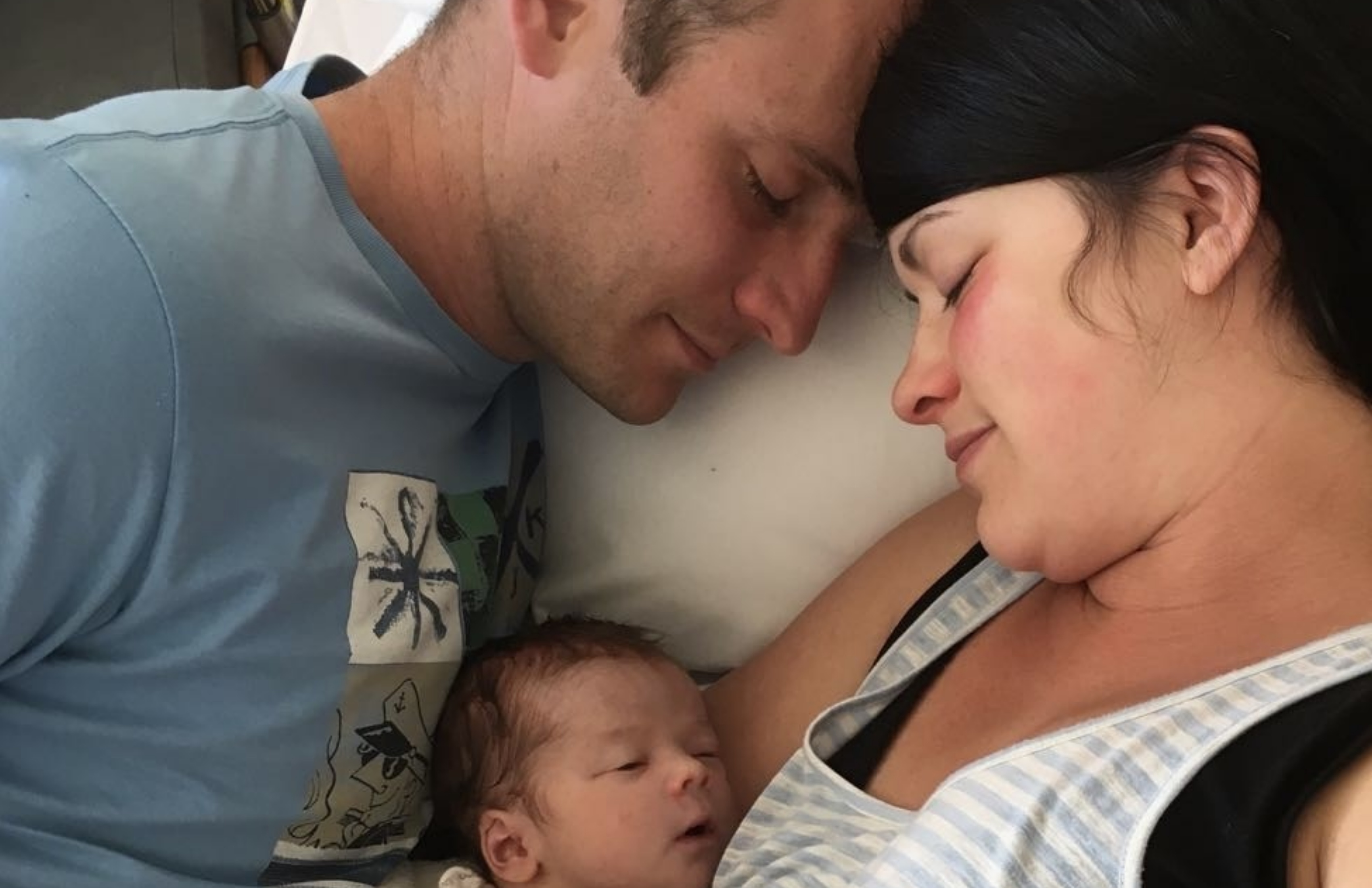


There was an “institutional failure” to provide adequate support and learning following the death of a young family’s child, according to a local politician who now sits on Health.
Deputy Gavin St Pier is looking to work with Law Officers to develop local Coroner’s Rules, after identifying through his own research “a number of issues in our local coronial service”.
It comes more than seven years after the death baby Oliver.
Jenna and Jonny Veron stood before an inquest in December last year, to speak of not just their grief but their fight for the truth.
Oliver was taken to hospital after being born at the couple’s home on 16 April 2016 at 4.15 in the morning.
Ambulance staff, two midwives and a consultant paediatrician all fought to save him at the home before he was taken into intensive care.
The family say that the only treatment options discussed with them were whether they wanted Oliver to pass away in their arms or on the ventilator.
One of the expert reports fought for by the family heavily criticised this approach, saying he fulfilled the criteria for active cooling treatment.
Questions were also raised about the standard of one of the examinations performed in the months leading up to the birth.
The inquest in December 2023 recorded a verdict of death by natural causes, with Judge Perry saying that it was important to note that the inquest was a fact-finding exercise only - it was not his function to attribute blame
You can read more about the inquest HERE.

The incident led to Deputy St Pier putting questions to Health and Social Care, as he sought to understand what changes have been made in the years since.
He initially sought to understand why HSC stated publicly in 2023 that “the independent reviews found no fault in the care provided”.
Two independent reviews were undertaken, one by the Portsmouth Hospital NHS Trust, and one by Dr Catherine Harrison. The Portsmouth report identified several areas of concern, and that “the care received by Baby OV was below the expected standard”.
“In light of the conclusions from two independent reviews, how did HSC reach its conclusion that “the independent reviews found no fault in the care provided?” asked Deputy St Pier in a series of Rule 14 questions to the President of HSC.
“The independent reviews identified that the Obstetric emergency care was managed well,” said Deputy Al Brouard. “The concerns raised were in connection with the evidence used on which the decision to withdraw active care from baby OV in the Special Care Baby Unit was based.”
The parents have also provided their thoughts on the answers provided to Deputy St Pier. In response to question one and the answer provided by the President, they said:
“We are extremely disappointed, but sadly not surprised with the response to this question.
“Once again HSC are choosing not to address the serious concerns raised by more than one independent medical expert report with regards to the timing of the decision to withdraw care from Oliver, as well as the standard of care Oliver did receive, being below the expected standard.
“We're sure the public would find it very alarming to know that HSC clearly do not consider premature withdrawal of care as a fault in the care provided.”
Here they are referring to a comment made by Dr Harrison that: “Oliver received timely and appropriate neonatal care initially.
“The timing of the decision to withdraw active care in my opinion was not appropriate, due to the interpretation of minimal investigations reflecting a single point of time and the lack of repeating these to ascertain any improvement, with non-tertiary level input in decision making or clinical care provision.”
You can read the full Rule 14 Q&A ONLINE.
Deputy St Pier has since provided a statement on the case and his involvement:
“I was approached by Mr & Mrs Veron shortly after the December 2023 inquest into their son, Oliver’s death in 2016.
“Everyone understands that an inquest following an unexpected death can be both an important closure in the grieving process but also an opportunity for those grieving to understand the circumstances of a death. Families also want to believe that if there are lessons to be learned, they have been learned, so that the smallest comfort in their grief is that others may not experience whatever they experienced and the chances are reduced of the same events producing the same outcome. The European Court of Human Rights has unequivocally ruled that there is a fundamental obligation to investigate unexplained deaths.
“I am embarrassed and ashamed at the institutional failure to deliver that for the Verons for over seven and a half years. There will of course be many reasons for the unconscionable delay. My initial research has thrown up a number of issues in our local coronial service:
- The absence of local Coroner’s Rules;
- The absence of any targets for completing inquests – e.g. a target in England & Wales of 12 weeks following the death of a child;
- The absence of specialist Coroners (with the function having been discharged in the Magistrates Court) with no power to compel witnesses to give evidence or to commission experts etc.;
- A focus on the cause of death rather than the circumstances of death, which risks losing sight of any systemic failings which may have contributed to the death;
- Despite the careful separation of functions, the risk of a perception of conflict of interest given the Law Officers are responsible both for gathering evidence for submission to the Coronerand also for advising the States in respect of any liabilities that might arise from a death.
“I will be meeting shortly with the Law Officers to explore these issues more fully. This is an area that fortunately touches few people in their lifetimes so by that measure it’s going to struggle to get to the top of the list for review. For those whose unfortunate loss forces their engagement with the system it is our responsibility to ensure it works as swiftly and effectively with their interests in mind. I’ve been approached by one member of the Guernsey Bar who has, for example, offered to help draft local Coroner’s Rules at no charge. I hope that offer will be taken up.
“The Verons were particularly upset that they were restricted in the comments they were permitted to make at the inquest. They also felt that HSC’s public comment following the inquest also diminished the Verons’ concerns as simply those of grieving parents. It sought to give the impression that there was no fault in the care provided, despite two independent reviews raising issues.
“The Verons found themselves in circumstances they neither imagined nor wanted but like so many others. Pretty much from moment one, their experience has been that the public service response has been highly defensive, lacked empathy and sought to minimise their legitimate questions. We have compounded and extended their trauma by our institutional responses – the polar opposite of a trauma-informed approach to which we pay lip service.”
Comments
Comments on this story express the views of the commentator only, not Bailiwick Publishing. We are unable to guarantee the accuracy of any of those comments.